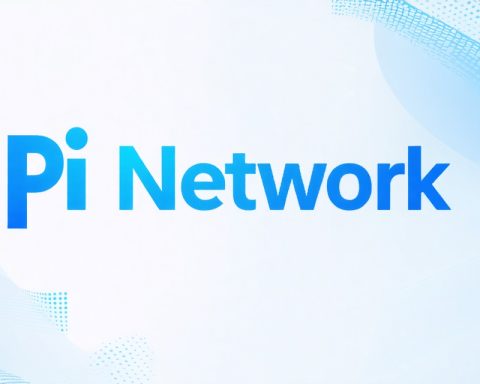Companies Respond to Changing Policies
In a bold response to shifting political landscapes, numerous companies are pushing back against recent attacks on Diversity, Equity, and Inclusion (DEI) initiatives. As the debate heats up, many organizations are reaffirming their commitment to promoting an inclusive workplace culture.
Recent legislative moves aimed at undermining DEI efforts have prompted firms to adopt strategies that not only protect these values but also promote them actively. These enterprises understand that fostering an environment where all employees feel valued contributes to their overall success. In fact, data shows that diverse teams can enhance innovation and improve performance.
A variety of industries, from technology to finance, are embracing these principles by implementing robust DEI programs. This includes increasing staff diversity, training programs tailored to mitigate unconscious bias, and public commitments to social justice issues. Such initiatives reflect a broader understanding that promoting equity in the workplace can lead to better outcomes for everyone involved.
As backlash against DEI persists, the commitment shown by these companies illustrates a refusal to back down from progressive values. They continue to engage their employees and communities in meaningful dialogue about the importance of diversity and inclusion. The message is clear: a thriving workplace is one where every individual, regardless of their background, has the opportunity to succeed.
The Broader Implications of Corporate DEI Commitment
The renewed commitment of companies to Diversity, Equity, and Inclusion (DEI) initiatives carries significant societal and cultural implications. As firms align their policies with progressive values, they not only shape their internal culture but also influence public discourse surrounding equity and diversity. This cultural shift can empower marginalized communities, fostering a more inclusive society that recognizes the importance of varied perspectives and experiences.
Economically, embracing DEI practices has been shown to drive innovation and profitability. According to McKinsey, organizations with diverse leadership teams are 33% more likely to outperform their peers in profitability. This financial incentive may lead companies to reassess their strategies to attract and retain diverse talent, which could shift recruitment norms across various sectors.
Environmentally, the commitment to DEI may also intersect with sustainability efforts. Diverse teams often bring unique perspectives that can address pressing ecological challenges more effectively. As businesses innovate to reduce their carbon footprints, the inclusion of diverse voices can ensure more holistic and equitable solutions are developed.
Looking ahead, as more companies adopt DEI measures, we may witness a transformative trend toward greater corporate accountability. Organizations might increasingly find themselves evaluated not just on financial performance but also on their social impact, leading to a broader cultural acknowledgment of the significance of equity in all areas of life. With this evolution, the potential for systemic change seems not just hopeful but achievable, truly reflecting the fabric of an increasingly diverse world.
Companies Stand Firm on DEI Amidst Controversies: The Future of Inclusion
Overview of DEI Initiatives in Modern Corporations
In recent years, Diversity, Equity, and Inclusion (DEI) initiatives have gained prominence within the corporate sector. With ongoing discussions surrounding political landscapes and social justice, many organizations are not merely resisting pushbacks against these initiatives but are intensifying their commitments. As companies navigate these challenges, a range of new strategies and best practices is emerging, showcasing how they can maintain inclusive workplace cultures effectively.
How Companies are Adapting to Policy Changes
1. Enhanced Training Programs: Many companies are doubling down on training programs designed to address unconscious bias and promote cultural competency. These initiatives aim to educate all employees on the importance of diversity and create a shared understanding of the value diverse perspectives bring to problem-solving and innovation.
2. Diverse Recruitment Strategies: To improve representation within their teams, organizations are refining their recruitment strategies. This includes partnering with diverse organizations, implementing blind recruitment processes, and setting measurable diversity hiring goals, ultimately fostering more equitable hiring practices.
3. Transparent Reporting: Companies are increasingly committing to transparency by publicly sharing their diversity metrics and progress on DEI initiatives. This not only enhances accountability but also allows organizations to engage with their stakeholders more meaningfully.
Pros and Cons of DEI Initiatives
Pros:
– Enhanced Innovation: Diverse teams are known to drive creativity and innovation, producing more diverse solutions and ideas.
– Improved Employee Retention: Companies that prioritize inclusion often see higher employee satisfaction and retention rates, as individuals feel valued and understood.
– Positive Brand Image: Firms committed to DEI can enhance their reputation among consumers, leading to potential increases in market share.
Cons:
– Resistance to Change: Some employees may resist institutional changes, fearing job security or questioning the efficacy of DEI programs.
– Resource Allocation: Implementation of robust DEI initiatives often requires significant investments in training, hiring, and resources, which can strain smaller organizations.
Insight into Industry Trends
Across various industries, the push for DEI is not just a fleeting trend but a structural change indicating a turning tide. For instance, the technology sector is pushing to close the representation gap by focusing on STEM education within underrepresented communities. Meanwhile, the finance industry emphasizes equitable access to economic opportunities, driving strategic partnerships with minority-owned businesses.
Specifications of Successful DEI Programs
Successful DEI programs often share the following hallmarks:
– Leadership Commitment: Senior management’s visible and vocal support is crucial.
– Continuous Assessment: Organizations must regularly assess their inclusion efforts and gather feedback to make data-driven decisions.
– Cultural Integration: DEI should be integrated into company culture and values rather than treated as a standalone initiative.
The Role of Technology in DEI
Advancements in technology are playing a significant role in the evolution of DEI efforts. Tools for data analytics enable companies to track diversity metrics effectively, while platforms for anonymous feedback help employees voice their concerns regarding inclusivity more freely.
Challenges and Limitations
Despite the prevalent support for DEI initiatives, challenges remain, particularly in regions affected by political resistance to these values. This may result in:
– Legislation that undermines anti-discrimination efforts.
– Companies facing backlash for their inclusive policies.
The Future of DEI Initiatives
Looking ahead, organizations are likely to focus on intersectionality within DEI frameworks, recognizing that individuals can belong to multiple marginalized groups. Companies must also anticipate market and cultural shifts, predicting that those who neglect DEI will find it increasingly difficult to attract talent and connect with consumers.
In conclusion, as companies pledge to uphold DEI principles amidst adversity, the long-term outcomes of these commitments will define both organizational efficacy and workplace culture far into the future.
For more information about how corporations are changing and adapting to modern challenges, visit Forbes.


















